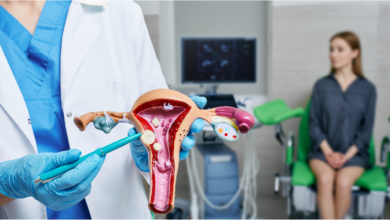
What is body dysmorphic disorder?
Body dysmorphic disorder (BDD) is a mental health condition
in which a person worries excessively about perceived flaws in their appearance. Despite often being objectively normal, individuals with BDD focus excessively on these perceived flaws, causing significant distress and impairment in their daily lives.
What are the symptoms of body dysmorphic disorder?
Common symptoms of BDD include:
• Excessive worry about physical imperfections (e.g., skin blemishes, thinning hair, face shape)
- Frequently checking perceived flaws or avoiding social situations due to embarrassment
- Seeking reassurance from others about their appearance
- Repeatedly engaging in the same behaviors to mask perceived flaws (e.g., excessive grooming, skin picking)
- Difficulty concentrating or performing tasks due to concern about appearance
Who can suffer from body dysmorphic disorder?
• BDD can affect anyone, regardless of age, gender or background. However, it is more common in young adults and teenagers.
What are the types of dysmorphic disorder?
• Although there are no distinct subtypes of BDD, individuals may have different body part disfigurements or varying levels of severity.
What tests are available for dysmorphic disorder?
There are no specific medical tests for BDD. A diagnosis is usually made based on a thorough assessment, including:
- Clinical interview: to assess symptoms, thoughts and behaviours.
- Psychological assessment: to evaluate the extent of preoccupation with appearance and its impact on daily life.
- Ruling out other conditions: to rule out medical conditions or other mental health disorders that may mimic BDD.
What is the treatment for dysmorphic disorder?
Treatment for BDD often involves multiple approaches, including:
- Therapy: Cognitive-behavioral therapy (CBT) is particularly effective for BDD, as it helps individuals challenge negative thoughts about their appearance and develop coping strategies.
- Medication: Antidepressants may be prescribed to address underlying mood disorders or anxiety.
- Support groups: Connecting with others who suffer from BDD can provide emotional support and understanding.
What diet should I follow, if any?
Although there is no specific diet for BDD, maintaining a healthy and balanced diet can support overall health. It is important to avoid unhealthy eating habits or restrictive diets that may contribute to body image issues.
Which doctor will treat body dysmorphic disorder?
• Psychologist
Can body dysmorphic disorder be completely cured?
Although fully recovering from BDD can be challenging, many individuals with BDD can manage their symptoms and improve their quality of life with proper treatment. If you or someone you know is experiencing symptoms of BDD, it’s important to seek help.





